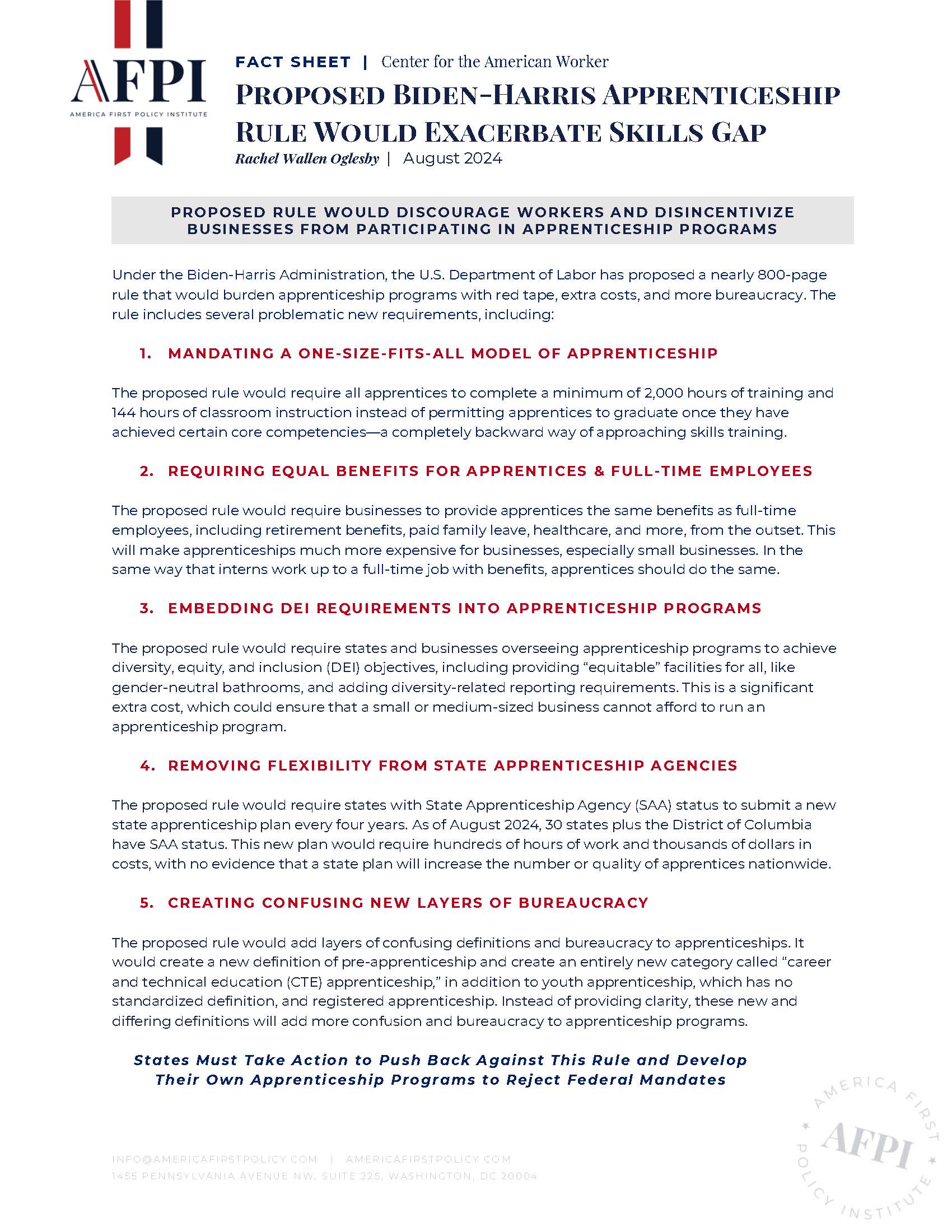America First Policy Institute
Proposed Biden-Harris Apprenticeship Rule Would Exacerbate Skills Gap
PROPOSED RULE WOULD DISCOURAGE WORKERS AND DISINCENTIVIZE BUSINESSES FROM PARTICIPATING IN APPRENTICESHIP PROGRAMS
Under the Biden-Harris Administration, the U.S. Department of Labor has proposed a nearly 800-page rule that would burden apprenticeship programs with red tape, extra costs, and more bureaucracy. The rule includes several problematic new requirements, including:
1. MANDATING A ONE-SIZE FITS ALL MODEL OF APPRENTICESHIP
The proposed rule would require all apprentices to complete a minimum of 2,000 hours of training and 144 hours of classroom instruction instead of permitting apprentices to graduate once they have achieved certain core competencies—a completely backward way of approaching skills training.
2. REQUIRING EQUAL BENEFITS FOR APPRENTICES & FULL-TIME EMPLOYEES
The proposed rule would require businesses to provide apprentices the same benefits as full-time employees, including retirement benefits, paid family leave, healthcare, and more, from the outset. This will make apprenticeships much more expensive for businesses, especially small businesses. In the same way that interns work up to a full-time job with benefits, apprentices should do the same.
3. EMBEDDING DEI REQUIREMENTS INTO APPRENTICESHIP PROGRAMS
The proposed rule would require states and businesses overseeing apprenticeship programs to achieve diversity, equity, and inclusion (DEI) objectives, including providing “equitable” facilities for all, like gender-neutral bathrooms, and adding diversity-related reporting requirements. This is a significant extra cost, which could ensure that a small or medium-sized business cannot afford to run an apprenticeship program.
4. REMOVING FLEXIBILITY FROM STATE APPRENTICESHIP AGENCIES
The proposed rule would require states with State Apprenticeship Agency (SAA) status to submit a new state apprenticeship plan every four years. As of August 2024, 30 states plus the District of Columbia have SAA status. This new plan would require hundreds of hours of work and thousands of dollars in costs, with no evidence that a state plan will increase the number or quality of apprentices nationwide.
5. CREATING CONFUSING NEW LAYERS OF BUREAUCRACY
The proposed rule would add layers of confusing definitions and bureaucracy to apprenticeships. It would create a new definition of pre-apprenticeship and create an entirely new category called “career and technical education (CTE) apprenticeship,” in addition to youth apprenticeship, which has no standardized definition, and registered apprenticeship. Instead of providing clarity, these new and differing definitions will add more confusion and bureaucracy to apprenticeship programs.
States Must Take Action to Push Back Against This Rule and Develop Their Own Apprenticeship Programs to Reject Federal Mandates
